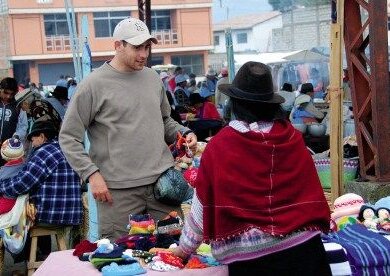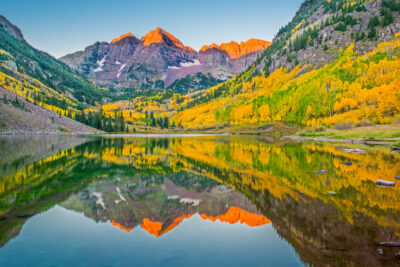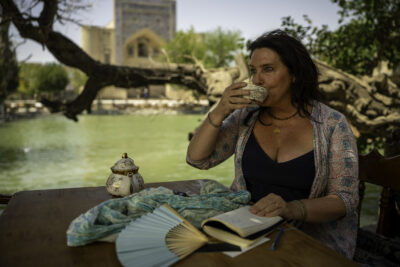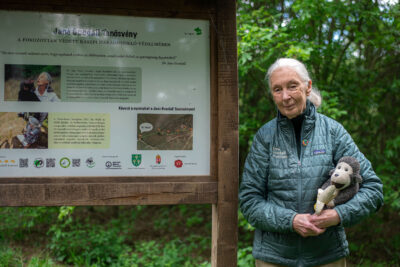
Tips for responsible souvenir shopping
These tips will make sure you not only get through customs with your shopping intact, but also avoid harming wildlife and other animals with your purchases
1. Uncomfortable in someone else’s skin
Without being aware of it, as travellers we may be buying products which come from endangered animals or which have caused an animal to suffer. Examples of such items include handbags, belts, hats and shoes made from reptile skin. While snakes are often caught wild, crocodiles – because of their endangered status – are now usually bred on large farms in unnatural, overcrowded conditions, and can be skinned alive.
Also avoid buying jewellery, combs, hairclips and other items made of turtle and tortoise shells. When the animals are caught, their flippers are sometimes pierced and sewn together with wired thread to stop them escaping, and at slaughter their body can be simply scooped from the shell with a knife while the animal is still alive.
2. End the ivory trade
Statues, necklaces, chess pieces, chopsticks and ornamental pieces made from tusks or horns from elephants and rhinos should definitely be avoided. Illegal trade in ivory and rhino horn is massive, with a soaring demand – particularly in Asia – fuelling poaching and pushing these species towards extinction.
Ivory and rhino horn is seen as a status symbol in countries like China and Vietnam, and powdered rhino horn is used in traditional medicine to treat a range of ailments. The growth of a wealthy middle class in these countries has driven up the demand for these products, and is seen as the most significant contribution to the last few years’ rise in poaching. Between 25,000 and 40,000 elephants are estimated to be illegally killed across Africa in 2013, and nearly 800 rhinos have been killed since the beginning of the year in South Africa alone, home to 80% of the continent’s population.
3. Souvenirs from the sea
Corals and seashells are often used in trinkets, jewellery and decorations. However, coral reefs are vulnerable to the impacts of tourism. Corals are living animals and an intrinsic part of a vibrant reef, providing food and foundation for homes and hang-outs of other animals.
There is no sustainable way to harvest corals without damaging critical marine ecosystems, and today both shallow-water corals and the deeper water coral species are threatened by over-harvesting. Most corals grow slowly, which means that snatching them up for souvenirs can do long-term damage to the whole reef community.
It is estimated that more than 20% of the world’s coral reefs have already been destroyed and are unlikely to recover. Buying products made from coral contributes to the loss of one of the ocean’s most important ecosystems.
4. Unsavoury potions
The popular Witches Markets in the Andes region of South America draw hordes of tourists, and they are undeniably fascinating. Items on sale include medicinal plants and potions, and amulets and talismans to bring luck, beauty and fertility.
But beware that many products on sale in these places contain animal products. Arguably the most famous (and to many tourists somewhat shocking) item at these markets is the dried llama foetuses, believed to bring good luck and protection when buried under someone’s house. If you are tempted to buy them, think twice – they will not be legal to take back to most countries.
5. Don’t get caught out
Trade in wild animals and their body parts is regulated by CITES (Convention on International Trade in Endangered Species of Wild Fauna and Flora), an international agreement designed to protect species which are threatened by international trade. Although you may find such items on sale – legally – in the country of origin, they can be illegal to bring home and if you get caught you may face a hefty fine.
It’s not only animals and their body parts that may be illegal to take home. An American tourist was detained in Turkey earlier this year for attempting to take rocks collected on the beach through customs – something most of us would assume is perfectly innocent. The Turkish authorities, however, claimed the stones were ‘ancient artefacts’, and the tourist was banned from leaving the country for a month before he was released.
Jenny Berg is from Care for the Wild International. Once you’ve got your ethical shopping list sorted, you might want to look over the rest of your travel plans too. Take a look at the RIGHT-tourism (Responsible, Informed, Guilt-free and Humane Tourism) website for information about issues to be aware of to make your trip both enjoyable and responsible.
4. Unsavoury potions
The popular Witches Markets in the Andes region of South America draw hordes of tourists, and they are undeniably fascinating. Items on sale include medicinal plants and potions, and amulets and talismans to bring luck, beauty and fertility.
But beware that many products on sale in these places contain animal products. Arguably the most famous (and to many tourists somewhat shocking) item at these markets is the dried llama foetuses, believed to bring good luck and protection when buried under someone’s house. If you are tempted to buy them, think twice – they will not be legal to take back to most countries.
5. Don’t get caught out
Trade in wild animals and their body parts is regulated by CITES (Convention on International Trade in Endangered Species of Wild Fauna and Flora), an international agreement designed to protect species which are threatened by international trade. Although you may find such items on sale – legally – in the country of origin, they can be illegal to bring home and if you get caught you may face a hefty fine.
It’s not only animals and their body parts that may be illegal to take home. An American tourist was detained in Turkey earlier this year for attempting to take rocks collected on the beach through customs – something most of us would assume is perfectly innocent. The Turkish authorities, however, claimed the stones were ‘ancient artefacts’, and the tourist was banned from leaving the country for a month before he was released.
Jenny Berg is from Care for the Wild International. Once you’ve got your ethical shopping list sorted, you might want to look over the rest of your travel plans too. Take a look at the RIGHT-tourism (Responsible, Informed, Guilt-free and Humane Tourism) website for information about issues to be aware of to make your trip both enjoyable and responsible.




















